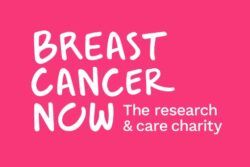Researching the experiences of people impacted by breast cancer
Our research provided Breast Cancer Now with clear insights of where support services for people affected by breast cancer need to be strengthened and targeted.
The challenge
Breast Cancer Now needed comprehensive, independent research into the experiences of people impacted by breast cancer across the UK.
While breast cancer affects millions of people directly and indirectly, there was insufficient understanding of the specific challenges, support gaps and priorities faced by different groups within the breast cancer community.
This included not only those diagnosed with primary or secondary breast cancer, but also people at increased risk, and the family and friends who support them.
Breast Cancer Now commissioned Kaleidoscope Health and Care and Ipsos as a partnership to carry out rigorous research that would provide evidence-based insights into these varied experiences.
The goal was to understand where support was lacking and what priorities mattered most to those affected, enabling more targeted and effective support services.
Our approach
We employed a comprehensive mixed-methods research design to capture the breadth and depth of experiences across the breast cancer community. The approach combined quantitative and qualitative methods to ensure both scale and nuance in our findings.
The research targeted four distinct populations:
- people with primary breast cancer
- people with secondary breast cancer
- people at increased risk of developing breast cancer
- family and friends of people with breast cancer.
A large-scale survey by Ipsos reached nearly 3,000 people across the UK, providing robust quantitative data on experiences and priorities. To complement this, Kaleidoscope conducted semi-structured interviews and focus groups with 40 participants selected from the survey respondents, allowing for deeper exploration of the challenges and support needs identified.
The outcome
Our research resulted in a comprehensive report that identified four key findings through synthesis of the qualitative and quantitative data. All four target populations experience significant mental health and wellbeing challenges, with notable gaps in support services.
The research highlighted that:
- people with primary breast cancer struggle primarily with the impact on others, physical symptoms, and post-treatment adjustment
- people with secondary breast cancer face challenges around treatment uncertainty, care team transitions, and maintaining independence
- people at increased risk deal with poor risk communication and screening access
- family and friends struggle to support their loved ones effectively while managing their own emotional wellbeing.
Our evidence-based insights provide Breast Cancer Now with a clear understanding of where support services need to be strengthened and targeted. The findings enable the organisation to develop more effective, tailored support programmes that address the specific needs of each population group, ultimately improving outcomes and experiences for the thousands of people affected by breast cancer across the UK.

